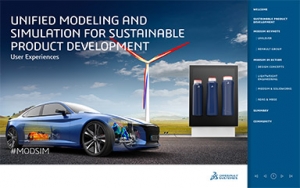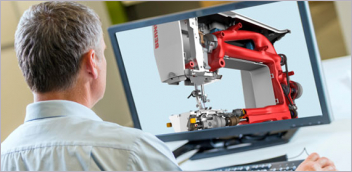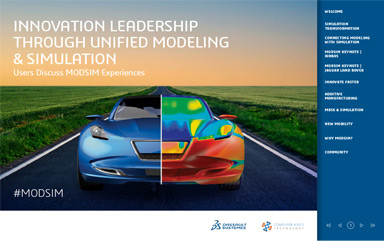Dassault, STMicroelectronics, Others Team Up to Create Software Republique
New collaboration to serve as an ecosystem for intelligent and sustainable mobility.
Latest News
April 12, 2021
Elie Girard, Bernard Charlès, Luca de Meo, Jean-Marc Chery and Patrice Caine, respectively the chief executives of Atos, Dassault Systèmes, Groupe Renault, STMicroelectronics and Thales announce their intention to join forces to create the Software République, a new ecosystem for innovation in intelligent mobility. By pooling their complementary expertise, the partners plan to develop and market together systems and software to provide a sustainable mobility offer for cities, regions, businesses and citizens.
Artificial intelligence, cybersecurity, connectivity, embedded electronics and virtual twin technology will contribute to these new products and services. This open innovation ecosystem, founded by five leaders in the automotive and technology fields, will welcome new members and develop open collaborations.

A Matter of Sovereignty
According to the Boston Consulting Group, the global mobility market will grow by 60% by 2035 to reach 11,000 billion euros. This growth is mainly driven by the emergence of technological disruptions - electric vehicles, new components, new after-sales services and other value-added services - whose share will increase from 5% to 45% of the global mobility marketi. Major industrial players on other continents, with state support, are already positioning themselves to develop many of these new technologies through enhanced integration strategies. Today, the founding members of the Software République express the urgency for France and Europe to collectively build a sustainable ecosystem that aims to ensure their sovereignty in this field.
Three Main Areas of Cooperation
To jointly develop and market intelligent mobility systems, enabling the implementation of an adapted and agile mobility offer, three main areas of cooperation have been identified:
- Intelligent systems to facilitate secure connectivity between the vehicle and its digital and physical environment.
- Simulation and data management systems to optimize flows for territories and companies.
- Energy ecosystem to simplify the charging experience.
For example, the following topics are being discussed by the Software République partners:
Plug and Charge
The development of new technologies and services to allow an electric car, connected to a compatible charging point, to be automatically recognized, and to perform a charge without any action by the user.
Optimizing Mobility Flows for Territories
To facilitate access to and simulation of mobility information exchanges, instantaneously and openly across cities and regions to enable:
- consumers to always select the best means of mobility according to time, comfort or energy management.
- operators to enrich their services.
- public authorities to simulate and implement mobility scenarios, such as emergency management, events, etc.
- urban planners to better anticipate land use planning.
To foster innovation, the Software République will also seek to create an investment fund to finance the most promising start-ups and an incubator to host start-ups in the field of smart mobility technologies, where they will have access to a collaborative virtual development and experimentation environment, and mentoring through a value network. For the launch of the ecosystem for start-ups and universities, the partners of the Software République plan to organize a data challenge to contribute to the development of the technologies for the mobility of tomorrow: electric, connected and autonomous.
As part of its sustainable vocation, the Software République will be based in Guyancourt at the Renault Technocentre in a building called Odyssée, a 12,000 m² space that is modern and eco-responsible. Its interior and exterior structure is 100% wood, with one tonne of CO2 saved per square metre built in comparison to a standard building, and the 1,000 m² roof of the building is covered with photovoltaic panels.
Sources: Press materials received from the company and additional information gleaned from the company’s website.
More Dassault Systemes Coverage

Subscribe to our FREE magazine, FREE email newsletters or both!
Latest News
About the Author
DE’s editors contribute news and new product announcements to Digital Engineering.
Press releases may be sent to them via DE-Editors@digitaleng.news.







